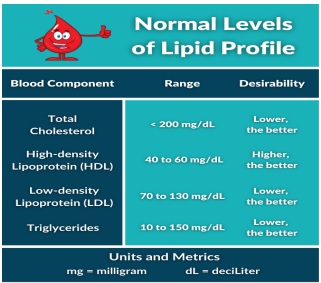Investigation into the Lipidemic Potential of Musa paradisiaca (Plantain) Stem Juice in Alloxan Induced Diabetic Wistar Rats
Keywords:
Lipids, Fats & Oils, Diabetes, Musa paradisiacaAbstract
The lipids including fats and oil are the integral part of living matter. Lipids primarily function as an energy reserve. Fats are packed together tightly without water and store for greater amount of energy in a reduced space. These fats when in excess in the body are converted to glucose by means of gluconeogenesis. Hence, this glucose can lead to diabetes if the patient has insulin problem, either because insulin production is inadequate or the body`s cell do not respond properly to insulin or both. Typically, we see a progression from obesity to insulin resistance, from the insulin resistance syndrome and finally to diabetes. With regards to the high increase rate of people with diabetes and the claim by traditional medicine practitioners that plantain stem juice has beneficial effect against this health problem, this research work is carried out to ascertain the claim or otherwise, since there is a relationship between level of lipids in vivo and health problem, diabetes. This research work shows the significant positive effects of plantain stem juice on the lipids profile of the subjects which suggest that it has high hypolipidemic potential.
References
R. Mans, H. Bengt, "The importance of health and medical care of public health", Pharmacological Research, Vol.10, Issue.61, pp.193-199, 2015.
K.R. Feingold, C. Grunfeld, "Introduction to lipids and lipoproteins", Journal of Lipid Research, Vol.1, Issue.3, pp.1-3, 2012.
F. Marangoni, A. Poli, "Phytosterols and cardiovascular health", Pharmacological Research, Vol.10, Issue.61, pp.193-199, 2010.
A.S. Alabi, O.G. Omotoso, B.U. Enaibe, O.B. Akinola, C.N.B. Tagoe, "Beneficial effects of low dose musa paradisiaca on the semen quality of male wistar rats", Nigeria Medical Journal: Journal of the Nigeria Medical Association, Vol. 54, Issue.2, pp.92-95, 2013.
O. Eseyini, B. Ekpo, K. Ajibesin, B. Danladi, "Evaluation of hypoglycemic activity of Musa paradisiaca l. (musaceac) in rats", International Journal of Research in Ayurreda and Pharmacy, Vol.2, Issue.2, pp.498-501, 2011.
A.R.M. Bassam, "Medicinal plants (importance and uses)", Article in Pharmaceutical Analytica Acta, Vol.3, Issue.10, pp.1-2, 2012.
A.N.M. Mamum, S.M. Hossain, H. Naim, K.D. Biplab, A.M. Sapon, K.S. Monokesh, "A review on medicinal plants with antidiabetic activity", Journal of Pharmacolognosy and Phytochemistry, Vol.3, Issue.4, pp.149-159, 2014.
A.A. Motaleb, I. Sobhan, K.K. Alam, N.A. Khan R. Firoz, "Selected medicinal plant of chittagong hill tracts", International Union for Conservation of Natural and Natural Resources, Vol.6, Issue.1, pp.11-12, 2011.
S.O. Oguche, "Evaluation of renoprotective potential of plantain (Musa parasidiaca) stem juice on rat model diabetes", International Journal of Scientific Research in Chemical Sciences, Vol.8, Issue.5, pp.11-15, 2021.
L.A. Ogidi, C. Wariboko, A. Alamene, "Investivagation of some nutritional properties of plantain (Musa paradisiaca) cultivars in Bayelsa State", European Journal of Food Science and Technology. Vol.5, Issue.3, pp.15-35, 2007.
T.A. Philips, "A Notebook Longman, Nigeria LTD" , Ikeja, Ibadan, Enugu. pp.125-129, 1976.
Z. Mohammed, A. Saleha, "Musa paradisaca L. and Musa sapientum L.: A phytochemical and pharmacological review", Journal of Applied Pharmaceutical Science, Vol.1, Issue.5, pp.14-20, 2011.
S.O. Akinyemi, I.O.O. Aiyelaagbe, E. Akyeampong, "Plantain (Musa spp) cultivation in Nigeria: A review of its production, marketing and research in the last two Decades", Acta Hort, Vol.2, pp.1-3, 2010.
O. Famakin, A. Fatoyinbo, O.S. ljarotimi, A.A. Badejo, T.N. Fagbemi, "Assessment of nutritional quality, glycaemic index, antidiabetic and sensory properties of plantain (Musa paradisiaca) based functional dough meals", Journal of Food Science and Technology Mysore, Vol.53, pp.65-66, 2016.
I.O. Ayoola, M.B. Gueye, M.A. Sonibare, M.T. Abberton, "Antioxidant activity and acetylcholinesterase inhibition of field and in-vitro grown musa l. species", Journal of Food Measurement and Characterization, Vol.11, pp.488-499, 2017.
A. Ghani, "Medicinal plants of Bangladesh: Chemical constituents and uses" The Asiatic Society of Banglahesh. Vol.315, pp.17-23, 2003.
P. Partha, A.B. Hossain, "Ethnobotanical investigation into the Mandi ethnic community in Bangladesh", Plant Taxon, Vol.14, Issue.2, pp.129-135, 2007.
K.K.P. Sampath, D. Bhowmik, S. Duraivel, M. Umadevi, "Traditional and medicinal uses of banana", Journal of Pharmacognosy and Phytochemistry, Vol.1, Issue.3, pp.51-63, 2012.
I. Anioke, C. Okwuosa, I. Uchendu, O. Chijioke, O. Pozie-nwakile, I. Ikegwuonu, P. Kalu, M. Okafor, "Invesgation into hypoglycemic, antihyperlipidemic and renoprotective potentials of Dennettia tripetala (pepper fruit) seed in a rat model of diabetics", Biomed Research International. Vol.1, Issue.1, pp.74-96, 2017
C.D. Luka, J.C. Oyeocha, M.K. Kwarpo, G. Istifanu, G. "Effect of processing unripe plantain (Musa paradiaca) extract on some biochemical parameters in alloxin-induced Wistar rats", South Asian Research Journal of Natural Products, Vol.1, Issue.2, pp.1-9, 2018.

Downloads
Published
How to Cite
Issue
Section
License

This work is licensed under a Creative Commons Attribution 4.0 International License.
Authors contributing to this journal agree to publish their articles under the Creative Commons Attribution 4.0 International License, allowing third parties to share their work (copy, distribute, transmit) and to adapt it, under the condition that the authors are given credit and that in the event of reuse or distribution, the terms of this license are made clear.





